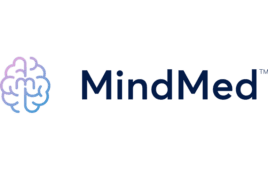
[Image by Pete Linforth from Pixabay]
In early July, Fox News television host Tucker Carlson noted that “a lot of young men in America are going nuts,” adding that “a shockingly large number of them have been prescribed psychotropic drugs by their doctors, SSRI or antidepressants, and that would include quite a few mass shooters.” Carlson concluded that while SSRIs are “meant to prevent crazy behavior,” there “seems to be a connection” between the drugs and mass shootings. In addition, Carlson claimed that many mass shooters in recent decades were prescribed antidepressants.
Gun violence prevention advocate Shannon Watts has observed, however, that Iceland has the highest per-capita use of antidepressants and have only have had a handful of shootings since 2020.
Progressives have also taken aim at antidepressants. A March feature article in the left-leaning magazine The Nation described the potential benefits and dangers of antidepressants. In particular, the feature reported on the risk of disabling withdrawal symptoms associated with tapering off the medications. In addition, the article noted, “at least tens of thousands of people feel their lives have been negatively affected, or in some cases ruined, by the drugs.”
While the degree of evidence associated with antidepressants and violent behavior remains low, attempts to correlate the two are not new. For example, a 2010 article in PLoS One identified 11 antidepressants suspected to be associated with reports of violence. The study, however, noted that the drug that seemed to be most strongly linked to reports of violence is the smoking cessation drug varenicline.
1. Are a ‘shockingly large’ number of men taking antidepressants?
Whether a “shockingly large” number of men are on antidepressants, as Tucker Carlson has noted, is debatable.
Overall, it is true that antidepressants are among the most popular medications. Between 2015 and 2018, 13.2% of adults used an antidepressant in the past 30 days. In addition, the use of SSRIs and the related medication class, serotonin and norepinephrine reuptake inhibitors (SNRIs), grew by 3,001% from 1991 to 2018, according to a study published in The Journal of Mental Health Policy and Economics.
And the use of the medicines jumped during the pandemic.
While antidepressants remain has surged in recent decades overall, women are more likely to take the medications than men, according to a 2020 CDC study. Between 2015 and 2018, 17.7% of women used antidepressants, while 8.4% of men did.
According to the Washington Post, the median age of a mass shooter is 16, and most perpetrators are either in adolescence or in their early 20s.
Yet antidepressant use in young men is relatively rare. According to the CDC data from 2015 and 2018, only 5.5% of men between 18 and 39 used antidepressants in the past 30 days. CDC data were lacking for males under the age of 18.
It appears that teenagers’ use of antidepressants has grown swiftly in recent years. According to data from Express Scripts, U.S. teenagers’ antidepressant use increased by nearly 40% from 2015 to 2019.
2. Do antidepressants potentially worsen suicidality and the risk of violence to others?
It can be challenging to understand the impact antidepressants may either preventing or contributing to suicide or violence.
A summary from PolitiFact casts doubt on the claim that psychiatric drugs fuel mass shootings, arguing that there is no clear cause-and-effect relationship between the two. The article quotes Dr. James Knoll, director of forensic psychiatry at SUNY Upstate Medical University, saying that if antidepressants led to an increased risk of violence, it should be evident in other demographics than adolescent males. “Why do we not see increased violence in women? People over 60?” Knoll asked.
PolitiFact consulted five other experts in reaching its conclusions.
Major depressive disorder itself leads to an increased risk of suicide and violence. A 2017 study in Lancet Psychology involving 47,158 depressed individuals and 898,454 controls concluded that those with depression were roughly three times more likely to commit violent crimes, including homicide and aggravated assault.
SSRIs may contribute to suicidal thoughts in some individuals — especially in pediatric populations. In the U.K., the Medicines and Healthcare products Regulatory Agency (MHRA) added a suicidality warning about pediatric antidepressant use in 2003. FDA did the same in 2004 and recommended only that Prozac (fluoxetine) be used in younger patients.
A systematic review of placebo-controlled trials in adults published in BMJ concluded that “antidepressants double the occurrence of events that the FDA has defined as possible precursors to suicide and violence.” The odds ratio of that finding was 1.85.
A 2006 study in PLoS Medicine did find an elevated risk of hostile events in adults and children taking the antidepressant Paxil (paroxetine) compared with placebo. Reviewing data from patients both taking the drug and those during withdrawal, the study concluded the rates of hostile events were “highest in children with obsessive-compulsive disorder (OCD), where the odds ratio of a hostile event was 17 times greater” than in placebo recipients.
The PLoS Medicine study also found a correlation between antidepressants and nightmares.
The use of antidepressants in pediatric populations has increased despite suicidality warnings, according to a 2020 paper in Frontiers in Psychiatry. The paper also criticized the lack of convincing evidence for antidepressants in adolescents, arguing that there appears to only be marginal benefits in that age group based on placebo-controlled short-term trials.
Another standard psychiatric drug class, benzodiazepines, has also been linked to an increased risk of suicide. The label for the benzodiazepine lorazepam, for instance, warns that “a possibility of suicide should be borne in mind.” “Benzodiazepines should not be used in such patients without adequate antidepressant therapy,” the label concluded.
Benzodiazepines have also been occasionally associated with violent behavior, as a report in Australian Family Physician noted.
3. Can doctors prescribe antidepressants to kids without their parents’ knowledge?
Among the recent controversies surrounding antidepressants is the potential for psychiatrists to prescribe antidepressants to school children in some states without their parents’ knowledge. In addition, minors can obtain mental healthcare services in some states, including antidepressant prescriptions, without a parent or guardian’s consent.
Washington state parent Eli Holt helped drive attention to the issue by posting a video on the video-sharing website TikTok. The video has been viewed more than 287,500 times since it was published in late June.
Children in Washington 13 or older can obtain mental health treatment without parental consent. In Oregon, children 14 and older can access outpatient mental health without parental consent.
Teens in New York state also access mental health services without the consent of a parent or guardian in some circumstances. Minnesota has similar laws. In Vermont and California, children as young as 12 can seek mental health treatment without parental consent.
4. How effective are antidepressants anyway?
Antidepressants appear to be most effective when used in conjunction with psychotherapy. A 2001 study in the Journal of Affective Disorders concluded that combining antidepressants and psychotherapy was more likely to lead to recovery than either treatment alone.
Various studies have also found that antidepressants appear to work best in people with severe depression.
SSRIs also can be helpful in PTSD, having an overall response rate of approximately 60% and complete remission in 20% to 30% of patients. A meta-review published in PLOS One also concluded that pharmacotherapy significantly reduced PTSD, anxiety and depressive symptoms.
Antidepressants may also support neuroplasticity, helping support neurogenesis in atrophied synapses in the brain.
An article on InformedHealth.org found evidence of antidepressant efficacy, noting they improved symptoms in about 20 out of 100 people. That is, between 20% to 40% of people taking placebo noticed improvements in depression symptoms. Between 40% and 60% of those taking antidepressants see improvement in their depression. Adults taking antidepressants are also less likely to relapse.
In any event, a degree of stigma often accompanies antidepressant use, partly because of perceptions related to emotional weakness and irresponsibility in depressed individuals, according to a 2011 article in The Journal of Nervous and Mental Disease. Another reason for such stigma is a belief that antidepressants are ineffective.
Some scientists have also questioned antidepressants’ effectiveness. A controversial 2014 study in Zeitschrift für Psychologie attributed 75% of antidepressants’ effectiveness to the placebo effect. Those conclusions met stern criticism. A re-analysis of the data led to more optimistic conclusions about antidepressants, but some of the antidepressants did not offer statistically significant improvements.
Another complication is that antidepressants appear to have variable effectiveness, according to a 2021 Lancet article. “For example, in age and gender subgroups, the best antidepressant had an average remission rate of 50.78%, 1.5 times higher than the average antidepressant (30.30% remission rate) and 20 times higher than the worst antidepressant,” the article noted.
The Lancet article also noted that about 60% of patients do not benefit from their first antidepressant. Many patients benefit from exploring multiple antidepressants. “For individual patients, there is clearly a right and wrong antidepressant,” the report explained.
The Lancet study, which reviewed data from 9 million treatment episodes, also indicated that antidepressant effectiveness rates could benefit from more sophisticated prescription patterns. The study included a link to an online tool intended to provide data-driven recommendations for antidepressants for patients.
Some preliminary studies highlight the potential of pharmacogenetic testing to help to minimize drug-gene interactions in patients with major depressive disorder (MDD). Still, it may be too early to tell whether such testing can result in long-term improvements in remission rates.
Questions also linger about the long-term use of antidepressants. Some researchers have linked antidepressants to a condition known as tardive dysphoria, a type of chronic depression. Others have concluded that “long-term antidepressant treatment can prolong remission and protect against recurrence.”
Filed Under: Psychiatric/psychotropic drugs





Tell Us What You Think!
You must be logged in to post a comment.